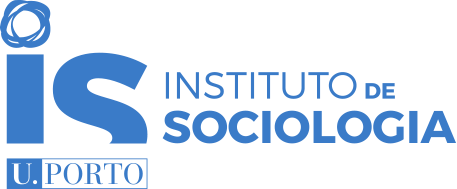| Mission: |

- To promote investigative activities in more general research fields like Epistemology, Sociology of Science, Methodology and Techniques of Investigation, or in other more specialised fields, like Social Sciences in Government, Sociology in Institutions, Sociology in Labour Environment, Sociology in Organisations, Territorial Sociology, Sociology of Cultures, Identities and Lifestyles, etc.
- To support research work, which is needed for the advancement of the Department members' career (namely in what concerns PhD degrees), not only through the available technical and scientific means but also through exercising the thematic discussion groups, oriented to the proper approaches.
- To provide external services, especially concerning the diagnosis and assessment/supervision of policies, institutions, and social alteration practices and processes, at different territorial levels (local, regional, national, global), as well as the development and promotion of Research-Activity projects in socially delimited units
- To provide innovation in the field of 'conceptual instruments', in methodology and in the modalities adopted to overcome the gap between Empirical Theory and Empirical Research
- The periodical issue of the 'Sociologia' journal is mainly directed at issues intrinsically connected with this field of knowledge, although interdisciplinary contributions are also . This journal will have an Editor-in-Chief and Editorial Council that mainly includes experts from Scientific Institutions external to the Department
- To promote and to support the publication of research work is another goal
- Close collaboration with the activities that are developed by the Sociology Department of the 'Faculdade de Letras da Universidade do Porto'
- This Institute inherits all the scientific experience achieved by the 'Instituto de Sociologia' since 1989
|
| Description: |
The Institute of Sociology of the Faculty of Arts of the University of Porto (ISFLUP) was created in 1989 with a view to promoting research in this specific field of knowledge, drawing also on insights from other social sciences.
It is part of the Portuguese Foundation for Science and Technology’s network of scientific research units since 2002. In close association with the Faculty of Arts’ Sociology Department, it has opened to the region and the country as a catalyst for scientific innovation and discussion. Many projects have been developed, involving a vast network of partnerships, particularly with public institutions and associations. The area of social policies comprises one of the Unit’s most researched transversal vectors.
Centred on fundamental research and the provision of services of social relevance, the Institute of Sociology aims to create progressively more active dynamics of community involvement, together with the public dissemination of its research results, so as to capture new publics to the scientific world and particularly to the development of a sociological approach to reality.
It´s Executive Committee consists of the following elements :
|